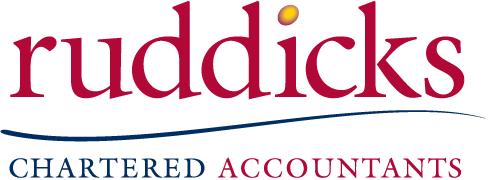Private ancillary fund - the vehicle of choice for tax-effective philanthropy
How? Through a Private Ancillary Fund, the structure that enables pursuit of philanthropic objectives while delivering significant tax advantages to the donors.
So what is a Private Ancillary Fund (PAF)?
A PAF is essentially a private charitable trust with a corporate trustee. It has Deductible Gift Recipient (DGR) status and in most cases has income tax exempt charity status.
Established under a trust deed or a will, PAFs allow the donors total control over the distribution of funds, as long as recipients of donations are Income Tax Exempt Charities, have DGR status and the PAF complies with the PAF Guidelines.
Why have a PAF?
The advantages are numerous, both from the point of view of the cake (the philanthropic kind) and the taxation perks for the donors:
- All donations to a PAF are tax deductible. This is particularly useful for those donors who have a spike in taxable income for a particular year, for example due to an asset sale resulting in a significant capital gain.
- The income of a PAF is normally exempt from income tax (if an application for the Income Tax Exempt Charity status is made to and received from the ATO). This means that income and capital gains are tax-free in the PAF with any received franking credits refunded to it.
- PAFs give trustees significant control and flexibility in terms of defining and revising the PAF’s philanthropic and investment objectives as well as the timing and scope of donations, subject to a minimum distribution requirement: PAFs must distribute the greater of $11,000 or 5% of the market value of the fund’s net assets in each financial year.
- The director(s) of the corporate trustee of a PAF can be an individual, family members or corporate group. There is however a requirement that one of the trustees is an independent party known as the ‘Responsible Person’, and this role is most commonly performed by the family accountant, solicitor or financial adviser. Any member of a professional body that has a code of ethics or rules of conduct will generally qualify as a responsible person.
- A PAF allows individuals to establish a philanthropic legacy in their own life time, with a vehicle that can continue into perpetuity if set up appropriately. The PAF can provide contributions to important causes and in particular, long term support to various projects and programs that may not otherwise go ahead.
- A family-based PAF is also a useful tool for intergenerational philanthropic commitments, with children under 18 being able to be involved by providing input into the shaping of the donation strategy and later taking on a more involved role as trustees.
- Donors are also able to make their PAF a beneficiary of their estate.
What's the catch?
It is important to note that there are a number of requirements that a PAF must meet including:
- Making decisions solely for the public benefit;
- Only donating to Income Tax Exempt Charities with a DGR status;
- Not soliciting donations from the public;
- Costs and time involved with ongoing record keeping, reporting and audit requirements that add to the cost of administering a PAF.
Is a PAF right for you?
Establishing a PAF requires expert tax, legal and financial advice and should be undertaken with care. If you are considering setting up an entity for philanthropic purposes, please contact your Ruddicks adviser to discuss whether a PAF would suit your needs.
Some of the key issues to be considered include:
- What are your long term philanthropic goals?
- How much control do you wish to have over your donations?
- What type of charitable recipients do you wish to support and do they have a DGR status?
- What is your level and pattern of donating and how do you envisage it developing in the future?
- How much involvement do you or your family wish to have in running a philanthropic structure?
Ruddicks is the leading firm in Tasmania in the PAF arena and we have helped numerous clients to establish a lasting legacy and advance their charitable goals. Our clients have reported to us that the establishment of a PAF has been a useful and enduring tool to unite their families towards a common benevolent goal. We will assist you in working through these considerations and help you to determine whether a PAF is right for your situation. We can guide you through the process of setting up and managing a PAF to enable you to reach your philanthropic goals in a tax effective manner. Who said you cannot have your cake and get a tax deduction too!

